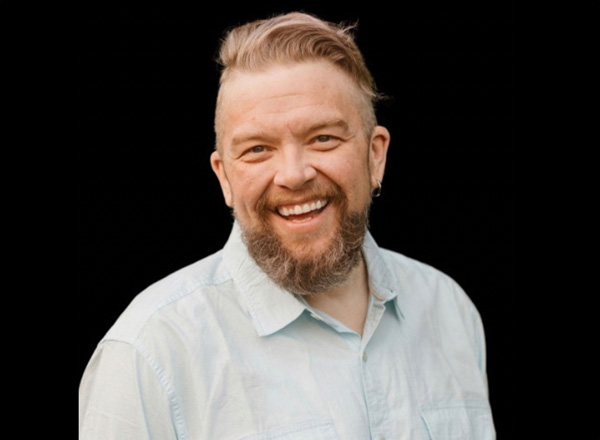Dr. Adam Hazlett elected to Self-Advocates of Michigan Board of Directors

HFC humanities instructor Dr. Adam Hazlett was recently elected to the Board of Directors for the Self-Advocates of Michigan, a division of the Michigan Developmental Disabilities Council, for a 2-year term.
“I was elected by the SAM membership. SAM is a newer organization created to address the lack of self-advocates’ voices. SAM is the MiDDC’s expert group, offering them expertise and firsthand experience to inform their decisions,” said Hazlett. “Our goal is to raise public awareness of developmental disabilities in Michigan and highlight the importance of personal, professional, and political autonomy. There are all these people who speak about what we need but ignore our voices when we speak about what we need. My job is to promote personal autonomy and political self-advocacy. ‘It’s nothing about us without us’ – that’s the motto.”
The new normal is no normal
Born in Sugar Grove, OH, a small town in the Appalachian foothills, Hazlett is the youngest of two. He lives with his wife, Vera, and their daughter, 10, in Fenton.
An alumnus of Berne Union High School in his hometown, Hazlett earned his bachelor’s degree in political theory and writing from Ohio University and a master’s degree in English, Language, and Literature from Eastern Michigan University. Hazlett later earned a master’s degree in political theory and a doctoral degree in religion, both from Harrison Middleton University in Tempe, AZ. He has taught at HFC since 2003.
In 2020, Hazlett was diagnosed with autism.
“I was having a lot of health problems around that time. I remember having a sensory overload meltdown and sought out treatment,” he recalled. “When my wife and I had our daughter tested for autism at the University of Michigan in Ann Arbor, the psychiatrists suggested other people in her family should get tested, too. That’s when I got diagnosed with autism. I’m a late-in-life diagnosed autistic Gen-Xer. For me, the new normal is no normal. I’ve been a different person since my diagnosis.”
A staunch advocate for the disability community
Ever since his diagnosis, Hazlett has been a staunch advocate for the disability community. He has been active with SAM and Detroit Disability Power. Since last August, he has written columns about autism for The Detroit News. He has also spoken at academic conferences and P-12 schools about autism in an attempt to eliminate its stigma.
“I wear the fact that I’m autistic on my sleeve. People are surprised to hear that I have a doctorate, I have a job, I have a wife, I have a kid, and I can drive,” explained Hazlett. “I usually speak about micro-accommodations (small, nuanced, adaptable adjustments in environments and behaviors catering to the diverse needs of individuals, especially those who have autism or who are neurodiverse), inserting universal design on a big scale.”
He continued: “I also address the human side of having a medically recognized disability and the inclusion issue. The whole point of my advocacy work is suicide and mortality. Those with disabilities – particularly mental disabilities – have a lifespan that is shorter by 15-30 years, and suicide rates can be up to 10 times higher. When I first saw those numbers, they screamed ‘epidemic’ to me. It’s one of the main issues I’m looking to address. I want people to be included and stick around.”
Humanities 101 Foundation
In late 2023, Hazlett founded a nonprofit organization called the Humanities 101 Foundation, which serves people with autism. Humanities 101 offers human-centered research and support to utilize the untapped potential and illuminate the beauty of the human experience through compassion and understanding. It strives to provide neurodivergent inclusion, acceptance education, and outreach to the community. It also provides support and resources to autistic people and their families.
“We believe that access and belonging lead to a stronger community,” said Hazlett. “The late Dr. Otto Feinstein (a Wayne State University political science professor) said, ‘The Detroit community has the resources; we just have to plug into them,’ which is what I’ve been doing. I’m building that bridge.”
He continued: “I know what it’s like to be lonely and to feel alone. I don’t want other people to experience that loneliness. It’s my personal and professional mission. When I teach humanities, I talk about quality of life and being a good human; I want to create that bridge for all people to become better humans.”